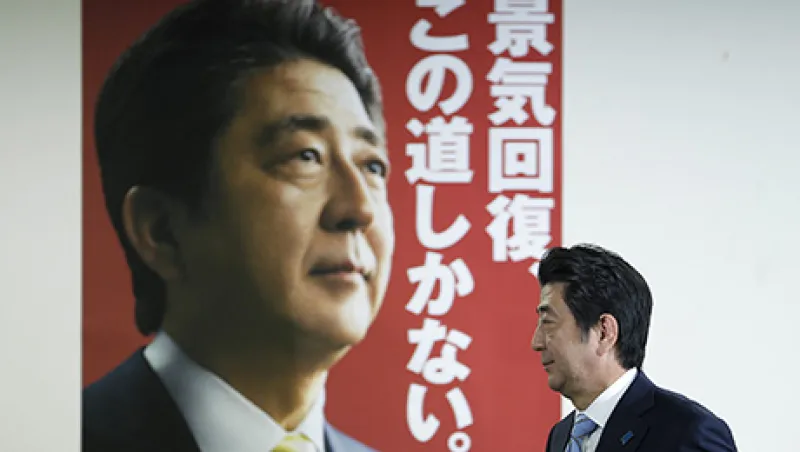
Bloomberg Photo Service 'Best of the Week': Shinzo Abe, Japan's prime minister and president of the ruling Liberal Democratic Party (LDP), leaves a news conference at the party's headquarters in Tokyo, Japan, on Monday, Dec. 15, 2014. Prime Minister Shinzo Abe claimed a mandate for his economic program after his gamble on early elections paid off with a sweeping victory that forced the leader of the opposition to resign. Photographer: Kiyoshi Ota/Bloomberg *** Local Caption *** Shinzo Abe
Kiyoshi Ota/Bloomberg

